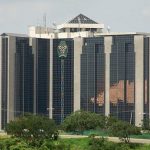Nigerian Banks Poised for Recapitalization
By Patience Ikpeme
The banking landscape in Nigeria stands primed to meet the Central Bank of Nigeria’s (CBN) directive to bolster their capital reserves, as confidently stated by Mr. Ken Opara, President of the Chartered Institute of Bankers of Nigeria (CIBN).
Speaking at the 22nd National Seminar on Banking and Allied Matters for Judges in Abuja, Opara underscored the preparedness of banks to raise requisite funds through diverse channels, including bond issuance and leveraging the stock market.
He underscored confidence in accomplishing the recapitalization goal and supporting the government’s envisioned $1 trillion Gross Domestic Product (GDP) target.
Opara’s confidence in the banks’ ability to recapitalize seamlessly is hinged on past successful surpassing of capital base thresholds and the depth of the Nigerian stock exchange as evidence.
Highlighting the ongoing preparations within the banking sector for heightened capital requirements, Opara assured compliance with the CBN’s directive as soon as the specific amount is announced.
Emphasizing the feasibility of achieving the recapitalization requirements when announced, Opara stressed the industry’s depth, financial strength, and the market’s capacity to support such funding endeavours.
However, alongside the positive outlook, Opara flagged four significant challenges plaguing Nigerian bankers. He raised concerns about unlawful harassment of bank officials by the Economic and Financial Crimes Commission (EFCC), stressing the need for accountability to prevent abuse of power.
Additionally, he called for judicial intervention to rectify the issuance of Bankers Orders by magistrate courts, which often lack proper legal authority and cause undue hardship for banks and their customers.
The CIBN President also highlighted the inappropriate deployment of garnishee practices, urging the judiciary to address this issue to safeguard depositors’ funds. Recognizing the escalating cyber threats in the financial sector, Opara urged for a collaborative effort between the judiciary and relevant bodies to fortify Nigeria’s capacity to adjudicate cybercrime cases effectively.
Supporting Opara’s assertions, the representative of CBN Governor, Mr. Kofo Salam-Alada, underscored the pivotal role of a robust and efficient judicial system in attracting Foreign Direct Investment (FDI). He emphasized that such an influx of FDI not only strengthens foreign reserves but also moderates inflation and stabilizes exchange rates, ultimately paving the way for sustainable economic growth and price stability.
The CBN Governor’s representative reiterated the judiciary’s indirect but crucial involvement in shaping monetary policy effectiveness, financial system stability, and overall economic growth through their interpretation and application of statutes related to these aspects.
In essence, the commitment of Nigerian banks to meet recapitalization requirements remains steadfast, contingent upon addressing pertinent challenges and fostering stronger collaboration among stakeholders for sustained economic growth and financial stability in the nation.




